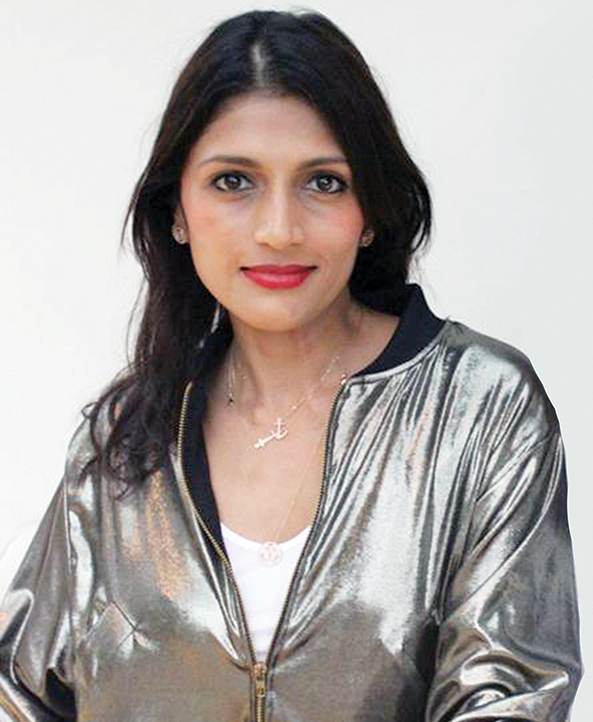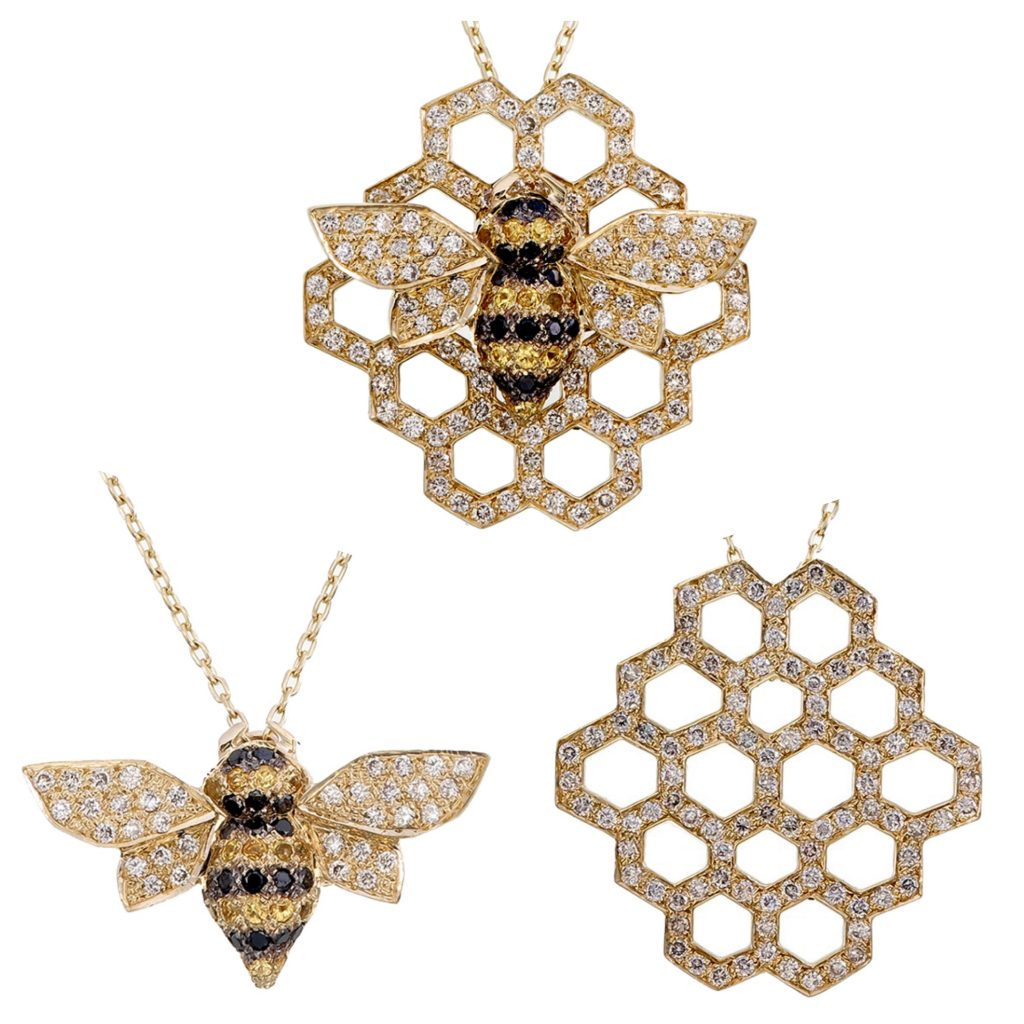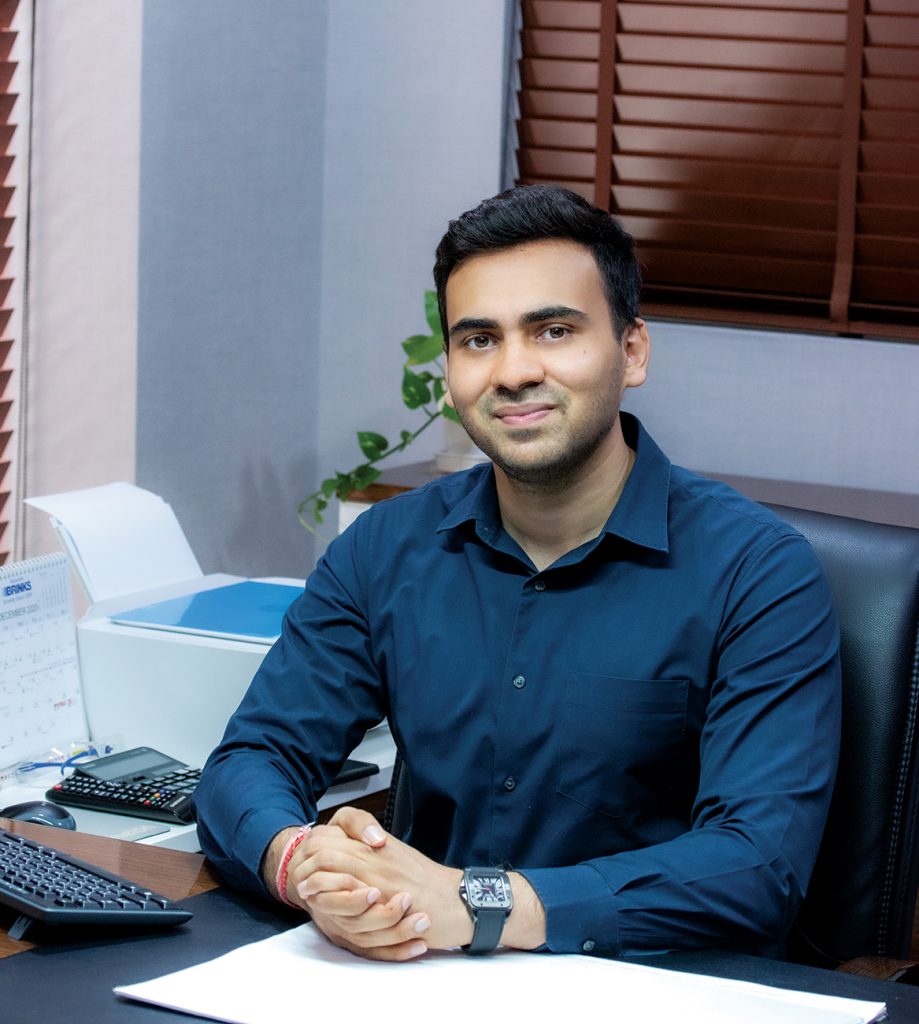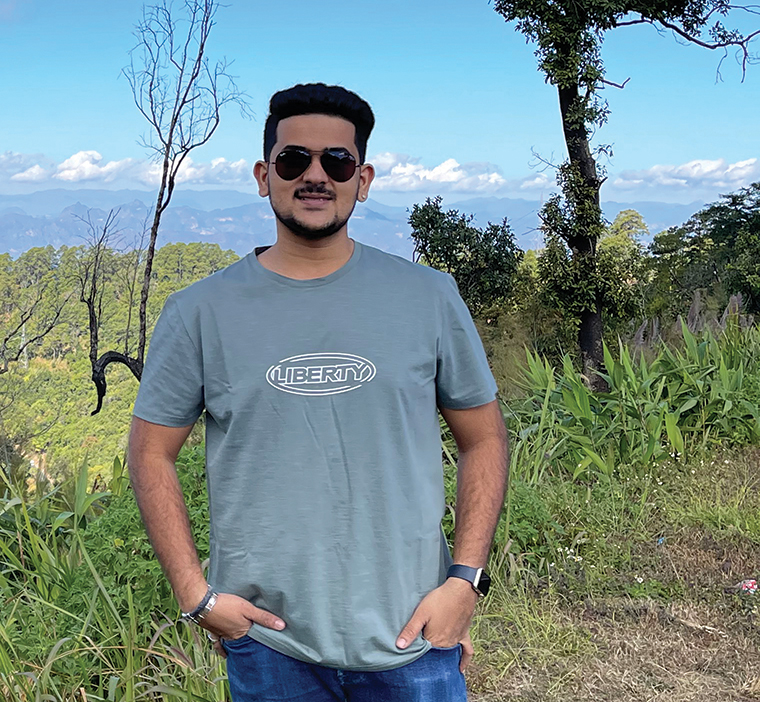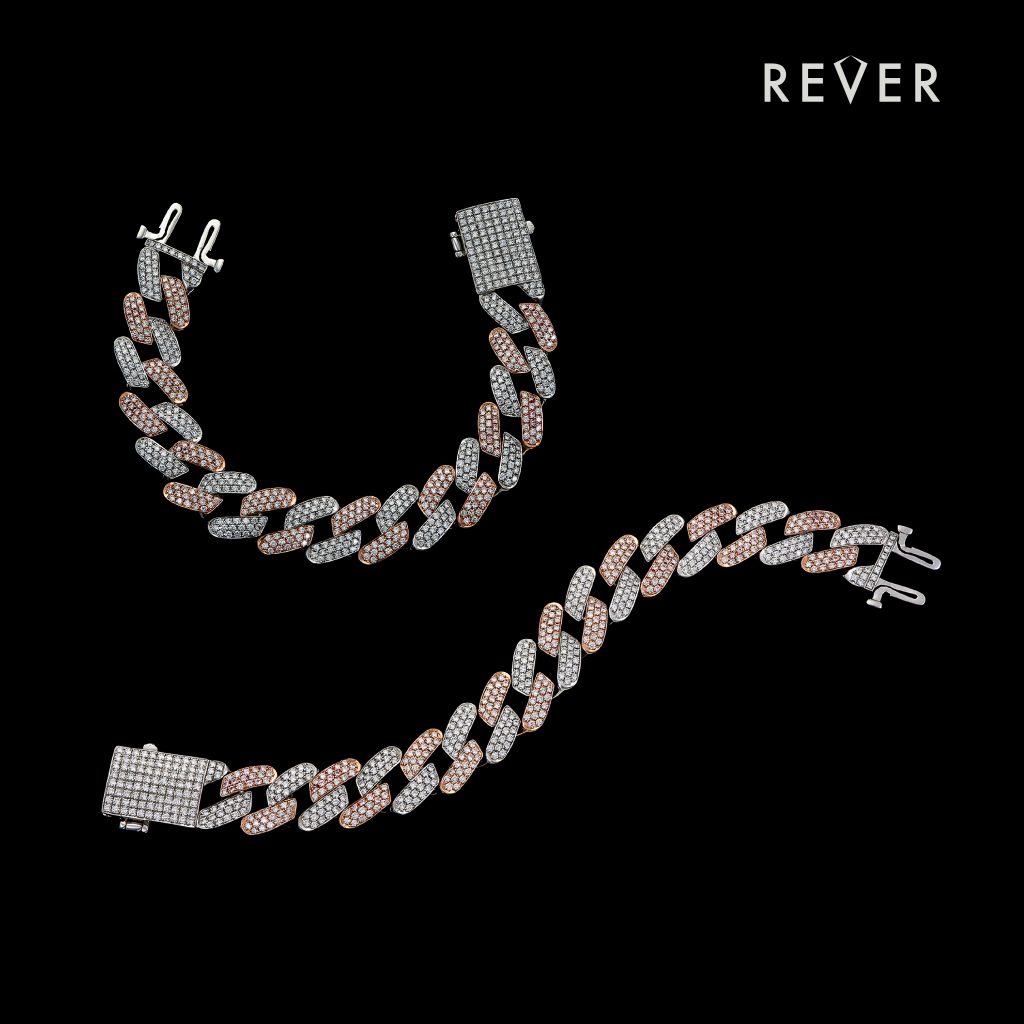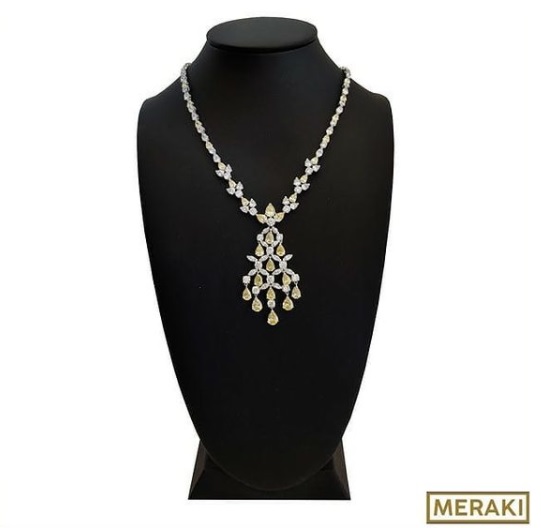What it’s like to be in the business of brilliance.
By Ashima Sethi and Aiden Jewelle Gonzales
It is a fact that many of the nation’s leading jewellers are Indian, each playing a role in helping Thailand retain its standing as one of the prominent players in the global gems and jewellery market. But like all industries, the market continues to rapidly change with the times, leaving a new generation of jewellers with the challenge of transforming what has worked for years. Masala speaks to five new-gen jewellers about how the market is shifting and how they plan on polishing up their businesses.
ANUJA KEDIA
Co-Founder, Ankha Jewellery
www.ankhajewellery.com
Can you walk us through your business, when you began it, and its unique concept?
When I came back from university, I helped to start CPS Chaps’ custom jewellery line. Alongside that, I was making statement pieces for private clientele, and I started a line called Allia, which was a semi-precious vermeer brand that my sister and I formed, that we sold predominantly in America. Things fizzled out afterhaving my children, but then a few years later I decided I wanted to jump back into designing, and that’s when I met my partner Rekha Sen, who’s Malaysian-Indian and Chinese, and we founded Ankha Jewellery in late 2017. The style is fine jewellery, predominantly 14-karat gold diamonds that are both wearable and meaningful. As women and mothers, we recognised the need for easy pieces that you don’t have to take off, but with a bit of depth. That’s when we came up with the duality concept – many of our pieces are two-in-one, where the halves can be worn by a mother and daughter, best friends, sisters, etc.; a way to celebrate the connection they have. We like to have fun with the designs. Rekha has a background in engineering, and I’ve continued my designs for one-of-a-kind statement pieces, so we like to continually push ourselves in the technical aspect of it.
What was your family’s history in the jewellery industry, and what was the impetus behind starting your own jewellery line?
My dad’s family started off in the textiles industry in Myanmar, but when the coup happened there and they had to flee to Thailand, they decided to start off fresh in an unknown industry: the precious stones business, which evolved into jewellery. Honestly, I never had any interest in this growing up, but when I went to art school in London for university, I found that I was drawn towards metal and jewellery art. It took me going away to find my way back to my family’s industry. I’vealways been independent and I wanted to create my own thing, but what started off as purely art and design changed, and now practicality and meaning are the main driving force behind Ankha.
Why do you think more people are buying from smaller jewellery lines rather than big-name brands?
People are drawn to brands because it’s part of how they want to be perceived. However, these days, people are more inclined towards unique, individualised design concepts that no one else has. Especially with the advent of the COVID-19 pandemic, people value their relationships more, so they’ve been getting more personalised jewellery, with, for example, the names of their kids or significant others.
What other changes have you noticed in what people are looking for in everyday wear and for more special occasions such as weddings?
I think the Indian community in particular is going for less traditional, flashy pieces. They’re starting to understand that it doesn’t have to be about brands, so they’re willing to think outside the box a little bit. Even with Indian jewellery for weddings, they still wear the heavy stuff, but maybe just a statement necklace or earrings, not both. Recently, people have been drawn to the idea of simplicity and charms, and adding on pieces with meaning.
Many jewellers, especially those who are heading up their own businesses, are male. What are the unique challenges and advantages that you’ve found being a woman jeweller?
Starting out our business, we did a lot of pop-up shows in Malaysia, Hong Kong, Singapore, Kuwait, and here. What we found worked for us as women was the relatability factor. We could talk to other women about our personal experiences with our pieces, and they could see us wearing it. The jewellery that we wear to shows are usually the ones that move the most. With our brand especially, our focus is on accessible, practical jewellery for women, and our clients range from themid-20s to 70s because at the end of the day, we know what they want and need.
DIVIJ KOTHARI
Director at Purity Jewelry Co.,Ltd
www.purityjewelry.net
Can you tell us a little bit about yourself and your upbringing?
I grew up in a typical joint family. My father
and my uncle moved here once they completed high school in Jaipur, so my family has been in Thailand for over 30 years. While growing up, I studied at Bangkok Patana School (BPS) before pursuing my higher education at Babson College in Boston, USA, where I studied Marketing and Entrepreneurship.
Have you always wanted to join the gems and jewellery industry?
No, I did not. My father always instilled in us that it was important to get exposure to industries and experiences that we had an interest in. Therefore, I was fortunate enough to work in real estate and hospitality before I joined the family business.
Did your family’s business impact your decision to become part of the industry?
No, actually one summer while I was still in college, I interned at Pandora Jewelry’s manufacturing unit in Bangkok and working within the company showed me the scale to which the industry can be taken, and how it can be run in a very corporate and professional manner, which is quite different to what majority of the industry comprises of. I believe that internship is what drove me to join the family business and take it to an even greater height.
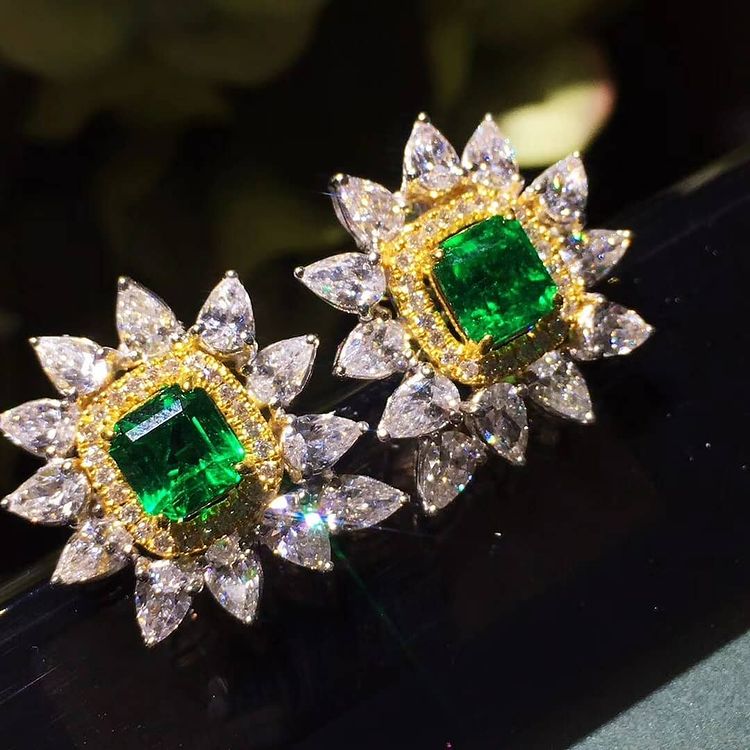
What kind of professional training did you undertake to be able to join this profession?
After college, I worked for six months in a gemstone cutting and polishing factory in Jaipur. There I learnt everything from evaluating rough gemstones, to polishing them and pricing them. From there I went on to learn basic diamond grading at a diamond trading office in Mumbai. After a brief time there, I went to GIA in California to gain theoretical and professional diamond related knowledge. After GIA, I went back to Mumbai and trained at another diamond trading office for six months where I learnt the process of buying diamonds.
What are some of the pros and cons of working in a multi- generational business?
Some of the pros are that we can avoid mistakes that the previous generation has done. We are also able to leverage the “secret sauce” they have used to grow the business, and combine it with our knowledge and education to grow the business even more. The cons are that there are sometimes disagreements when you want to change the business in certain ways because the previous generation has abundance of experience in comparison to ours. Another challenge is separating work and family, especially if you are having a disagreement at the office and then heading home together. Those situations do get a bit difficult to manage.
RONAK JHAVERI
Founder of REVER
www.reverjewels.com
Tell us about your jewellery business, and what makes it unique.
Our concept is to create our customers’ finely-curated dream jewellery, in all types of diamond and rare gem settings, to their satisfaction and budget. This is reflected in our name, REVER, which means ‘to dream’ in French; each of our clients’ jewellery has their dreams and story integrated into the design. We work closely with them to ensure their piece of jewellery, whether big or small, is one-of-a-kind and makes them stand out from the crowd.
What interested you in the industry growing up, and why did you branch out by yourself?
My family has been in the diamond industry for more than 30 years, retailing fancy cut diamonds under the name Thai Gem and Diamond Co., Ltd. Watching my dad dealing in diamonds growing up gave me the know-how and training, and creating jewellery was always my passion, but joining an already well- established family business did not grind my gears enough. I wanted to grow and diversify within the industry. I was also intrigued by the luxury of finely-crafted jewellery, and I wanted to provide that to my clients. Owning and starting my own establishment is my dream, and although the business is co-owned by my family, having sole responsibility over it is what provides me with the drive to be successful.
How would you address those, especially in the Indian community, who might prefer buying from more established businesses?
Well-established jewellery businesses are mainstream and usually heavy on the budget. We make one-of-a-kind custom jewellery, always keeping the client in mind. Our unique selling point is that every piece is personal to you because it will be exactly the way you envision it, and we turn your dreams into reality. Our customers get to go through the process from start to finish, which is not necessarily something older and bigger businesses provide, and we understand newer and emerging trends.
What are some of these emerging jewellery trends, especially in our generation?
Bespoke and custom jewellery is a fairly new movement. I personally think we are the generations of Instagram; we see something we like and we buy it. At REVER we tap into that mindset. We’re flexible and creative, and provide opportunities for our clients to achieve their desired jewellery within their budget. Many of my young clients are always looking for more personalised options, such as birthstone pendants, or a ring with an imprint of their cat’s paw.
People our age are more aware of ethical considerations, including when it comes to gemstones. How would you tackle those concerns?
This industry still runs on traders, and combatting the ethical issues of the stone source and the supply chain is extremely difficult. On our level, we try our best to make sure we source only from our trusted suppliers, and in terms of authenticity, we certify the stones when requested.
ANMOL and TIJ JHAVERI
Jay Gems Co., Ltd &
Meraki Fine Jewelry Instagram: @merakifinejewelry
Can you tell us a little bit about yourselves?
Anmol: Our parents moved to Bangkok when my brother Tij and I were very young. They were both born and raised in Mumbai, but moved to Bangkok when my dad got a work opportunity. My brother and I both studied at NIST and then went to the UK for university.
Have you always wanted to join the gems and jewellery industry?
Tij: Growing up in a family and community of diamond traders and jewellers, we were exposed to the industry at a very young age. One summer during university, I decided to explore my interest in the business and did an internship at a jewellery factory in Bangkok. I was amazed by the dedication and detail that went into making the simplest pieces. This was definitely when I fell in love with the industry and was sure I wanted this to be my career.
Did your family business impact your decision to become part of the industry?
Anmol: At a young age, Tij and I both knew we wanted to work with our father. Although he also wanted us to join him, the decision was ultimately our choice. My father, unfortunately, lost his own father at a really young age. Having worked hard to grow his own business and support our family, our family business was much more than just a diamond trading business. It was a symbol of strength and resilience and success that my father built, so without a doubt we wanted to join him and grow what he had started.
What kind of professional training did you undertake to be able to join this profession?
Anmol: After university, I moved to Navsari and Surat in Gujarat, India, where approximately 90 percent of the world’s diamond cutting and polishing takes place. I was lucky to be able to learn from pioneers and experts in the diamond industry. My training was a very hands-on and intensive experience, I worked in a factory where I was taught everything from manufacturing and polishing to cutting, grading, and quality assessing diamonds. Despite how challenging it was, it gave me invaluable knowledge and exposure to the industry. Once my training was complete, I moved back to Bangkok to work with my dad. Tij saw business potential in India and moved to Mumbai to manage the office and operations.
What motivated you to start your own independent jewellery line?
Tij: After joining our family business, I began to realise there were opportunities in a different segment of the market that we were not addressing yet. We’ve seen consumer behaviour change over the past 10 years, with many interested in investing in more affordable and wearable pieces. With destination weddings and social media on the rise, we began to see an increase in inquiries for pieces that were more casual and easier to travel with. Some clients wanted to invest in multiple pieces to add variety to their collection, instead of one high-value item. Thus, we created Meraki, a selection of high-quality, handcrafted fine silver jewellery, for every occasion.
What were some of the challenges you faced starting a new brand?
Tij: Meraki was born right before COVID, thus the timing of our launch brought unprecedented challenges. We experienced delays in manufacturing and logistics hiccups. Given the impact on the economy and spending power, we experienced high fluctuation in consumer demand which made it challenging to plan. The challenges of the past year gave us great insight and pushed us to think outside the box. It equipped us to rethink the basics, engage with our clients in a highly personalised manner, and really be true to our values.
If you’re still working within the family business as well, what are some pros and cons of working in a multi-generational business?
Anmol: Working in the family business can be incredibly rewarding and fulfilling. We have a great structure where everyone is accountable and driven towards the same goals. I’m happy to work in a place where I have such a strong support system like my father and Tij. We are not a multi-generational business, we are really just at the beginning, setting a strong foundation for the future. We believe we have laid a strong foundation for the business and are excited for the coming years.
Can you tell us a bit about what kind of jewellery you specialise in?
Tij: As our business has its origins in Thailand, the finishing of our products has always been of paramount importance to us. While we have branched out into fine silver jewellery, we still firmly believe that the way a piece is finished makes all the difference. As trends and consumer choices keep evolving rapidly, clients do not want to spend exorbitant amounts on a single set of jewellery. This being said, they do not want to compromise on design and quality either. What Meraki offers is the best of both worlds – high-quality finish and wearable designs, at an affordable price point. We chose this style of jewellery because this is what our family specialises in. Leveraging on our expertise of knowledge of gold and diamond jewellery, and integrating the same process into silver jewellery, our endeavour is to create affordable luxury.
How do you hope to expand the brand in the future?
Tij: We’d like to increase our exposure on eCommerce to make our line more accessible globally. We’re also expanding into different collections to address different styles of jewellery in demand, from traditional Indian to modern contemporary pieces.
What recommendations can you give young professionals looking to launch their own jewellery businesses?
Anmol: I would say the most important thing you can do to prepare yourself is to start with a dedicated and hardworking team. Trying to do everything on your own compromises your ability to deliver to your full potential. You will inevitably find people who are better or more knowledgeable in a certain area than you are. Although cliché, a new business requires a lot of time and attention. Don’t be afraid to delegate and ask for help. In a competitive landscape where your client has the luxury of choice and in jewellery, having a strong team will always help you work efficiently and meet your client’s needs.



